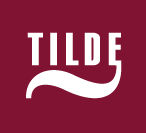- Company name: Tilde
- Team: Rihards Kalnins, Arturs Vasilevskis, Roberts Rozis, Marcis Pinnis, Valters Sics and Valentins Kozlovskis
- ODINE funding: €98,800
What does Tilde do?
Tilde develops language technology and localisation solutions that help customers to cross language barriers in the digital age. Our innovative solutions are used by multinational corporations, EU public administrations, and major language industry companies to enable multilingual communication between global audiences.
Where did the business idea come from?
Though multilingualism is a core value for the EU, the existence of 24 official languages has led to significant barriers in communication. Language barriers are acutely felt by companies that want to sell their products cross-border. Most consumers won’t purchase products and services if they aren’t in their native language – a huge problem for companies that don’t provide multilingual content.
Our custom machine translation (MT) is a powerful, indispensable tool for companies to boost translation productivity and instantly cross language barriers, fueled by the latest advances in AI, deep learning, and neural network technology.
Are you working with partners?
While building our MT infrastructure, we partnered with some of the leading research and innovation centres in Europe, including the University of Edinburgh. We continue to take part in international research and innovation projects with major players in the language technology industry, channeling the latest technological advances – such as neural MT, which builds a complex mathematical structure called a neural network to crack translation problems – into our products and services.
In addition, we partner with the EU and the United Nations to craft multilingual policy by providing input on the current state of language technology innovation and development.
How has ODINE helped you so far?
The raw material of language technology services such as MT is multilingual data. Resources – such as texts already translated in two or more languages – are used to develop language technology services by training complex algorithms to translate between languages.
ODINE helped us to collect, process, and validate massive volumes of multilingual open data in multiple languages. This data, collected during our time with ODINE, will now enable us to build even more powerful MT systems for clients, in a range of languages and domains, providing higher quality and more accurate translations.
What advice would you give to other companies pitching to ODINE?
Stay true to your vision and focus on the customer solutions that your products and services address. ODINE helps companies to build stronger solutions that can keep pace with the growing demands of global customers.
What’s the key trend in open data at the moment
If you look at the EU open data portal, you’ll find that one of the most viewed datasets is DGT translation memory, which contains bilingual translations of EU legislation made by the EU’s directorate-general for translation. The reason why this open dataset is so popular is that multilingual open data is a primary resource used by the technology community to develop language technology solutions for EU languages.
The sheer popularity of this dataset proves that the processing of multilingual open data is not only a key trend, but is now absolutely invaluable for helping the world to develop new solutions for overcoming language barriers in the digital era.
During our time in the ODINE incubator, we were proud to work on producing a massive new corpus of multilingual open data in EU languages, called the Tilde Modelcorpus. This will enable us to build stronger solutions for meeting our customers’ needs.
As seen on the Guardian website




